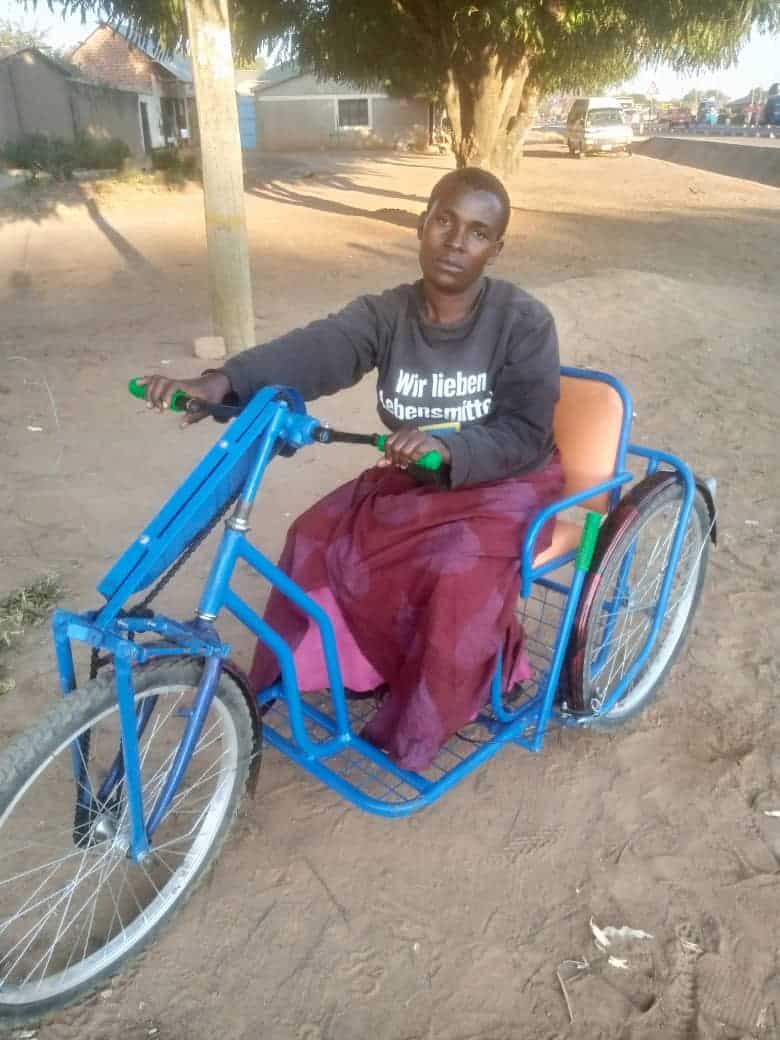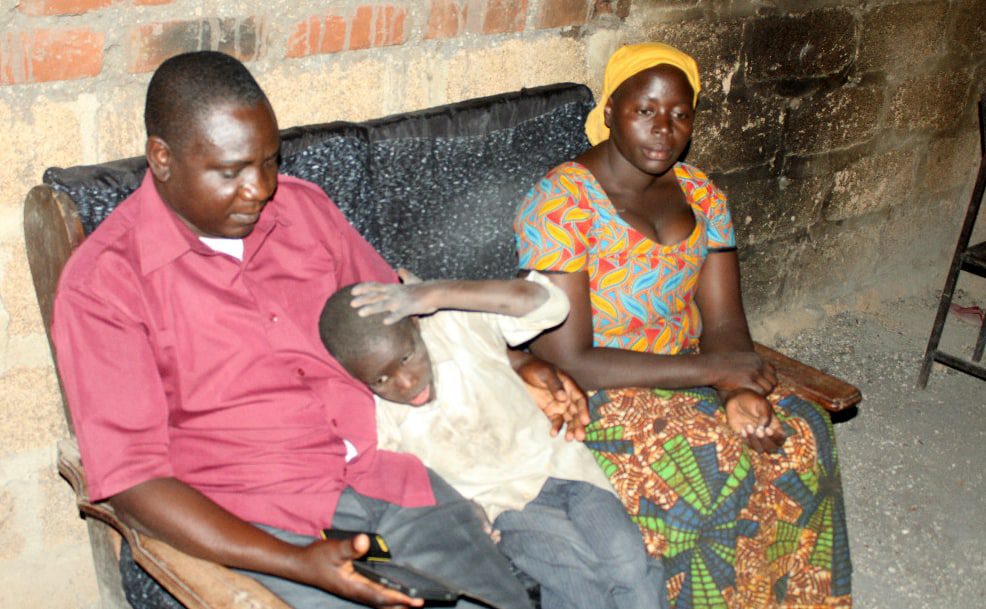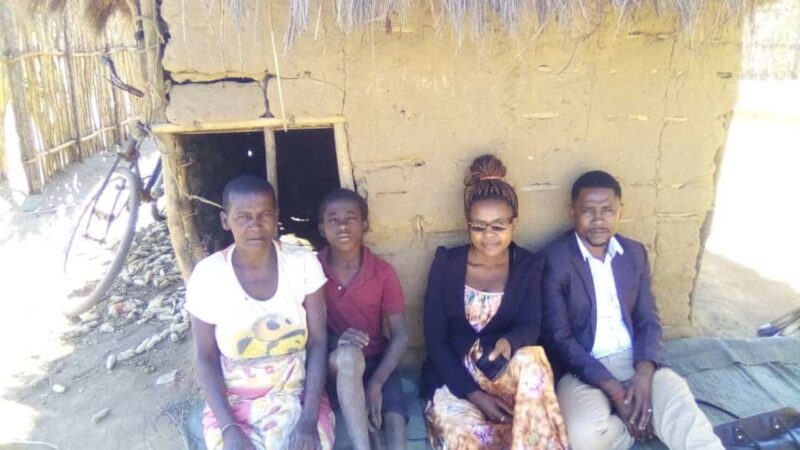In Tanzania, local journalists make reporting on disability issues part of every “beat”
A path to independence
“I’ll master it, eventually!” says Maria Sangu, sitting on her newly donated tricycle. “I’m so happy, now I can go anywhere.”
Maria, who lost the use of her legs nine years ago, is forty-one years old and lives in Sumbawanga in western Tanzania. She is one of several people with disabilities across Tanzania whose stories have been brought to light by local journalists trained under Internews’ Inclusive Media Project.
Maria was interested in starting a small business but did not have a means of transportation.
After radio presenter Anna Malisa aired Maria’s story on Ndingala FM, staff at Grace Community Development and Education (GCDE) got in touch with Anna and offered to donate a tricycle to Maria.

“Once I get confident about riding it, I’ll start my small business!” said Maria.
In addition, GCDE’s Coordinator of Community Health Anthony Kombasays said, “We can provide more help by connecting Maria with income-generating and business-training groups, which should help her to secure a start-up loan.”
Raising awareness about barriers to attending school
Juma Hussein, aged 13, lives in Newala district and had to drop out of primary school because of an injury to his leg, which made the daily long walk painful. Juma needed special shoes and crutches, but neither his family nor his school could provide these items.
“Juma missed two months of classes and was unable to sit his exams,” says head teacher Daudi Lingangala.
Newala FM reporter Said Shedah Masha heard about Juma’s situation and decided to report on it.
“I visited Juma, saw his problem, and realized how much he was suffering. He really wanted to continue his classes but could not. After my story was aired, Newala City Council’s social welfare office contacted me and helped Juma to get treatment.”
Newala City Council Social Welfare Officer Charles Mbwambo says his office will always try to help children with disabilities.
“The problem is, some parents are superstitious about disabilities and turn to traditional healers, but they should contact us, because we offer real support. So, that’s one reason I would urge journalists to cover more stories like this.”
Meanwhile, young Juma is delighted. “I’m very happy, I can go back to school!”
Hidden away, a child is now given a chance at an education
Michael Maduhu is reporter for Nipashe newspaper in Shinyanga. He says Internews’ training on inclusive media has helped him and other journalists to become quite passionate about covering people with disabilities.
“In the beginning, I wanted to take the stipends, complete the task early, and chase other news. But after writing several of these stories, I realized that people with disabilities are often overlooked or forgotten. They need our help to raise their voices. Such stories are now a regular part of our beat.”
For example, Michael heard about fourteen-year-old Kulwa Thomas, a child from a poor family, who had been locked away at home for a long time because of his disability. Michael reported the story, shared it with other journalists and, eventually, some citizens intervened, including the owner of a local private school, who offered the boy a scholarship.
Kulwa’s mother Anastasia Gerald says she only locked her son up because she had no one to care for him while she was at work.
“So, I’m truly thankful that I got this help. I will make sure I pay for Kulwa’s transport, to-and-from school. He’ll get the education he needs.”

Michael says that press coverage can really make a difference.
“Without it, that boy would have had no chance of an education. Just imagine, if we could publish one story each day, in every newspaper, about a forgotten person with disabilities? We could bring so much happiness to so many families. That’s why I’m still going to cover these issues, even though my mentorship from Internews has ended.”
Inclusive Media is a two-year project supporting and empowering journalists in key countries in Sub-Saharan Africa to increase and improve their coverage of disability issues, presenting disability issues in a way that promotes the dignity of PWDs as well as amplifying their own voices and perspectives.
